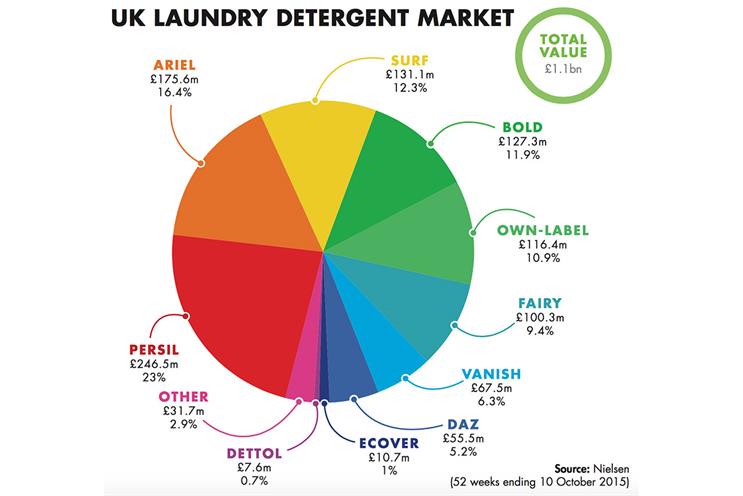
While the UK’s big four supermarkets – Tesco, Asda, Sainsbury’s and Morrisons – are locked in a bitter price war against Aldi and Lidl, their biggest FMCG partners are looking for growth elsewhere.
Last week, Unilever revealed a three-month tie-up with laundry start-up ZipJet to offer Persil Wash & Fold. The service’s 50,000 customers use an app to arrange to have their dirty laundry picked up, washed with Persil products, then delivered home.
Lorenzo Franzi, co-founder and managing director at ZipJet, says the partnership offers Unilever data and agility. ZipJet can bring new products to market at speed, while the Persil brand fosters consumer trust. As for data, the brand is quite literally going through consumers’ dirty laundry.
Franzi says: "For example, families have very big baskets of laundry and we get the suits and the bed linen. But we don’t get the baby clothes, which are still washed at home, suggesting trust is key."
Multiple observers suggest this is a tactical partnership for Unilever compared with the unexpected $1bn acquisition of razor subscription start-up Dollar Shave Club in the US. Both moves offer clues on where FMCG brands are vulnerable.
Jon Goldstone, global managing partner at The Brandgym and a former Unilever senior marketer, says big FMCG brands are struggling to make sense of the shifts in traditional retail and media.
"Classic FMCG is becoming a harder place in which to operate – very few companies are having any great success at the moment," he says. "Traditional retailers are losing dominance so companies are having to be much more adventurous in looking at new channels."
In the spirit of exploration, P&G launched a Dollar Shave Club imitator, Gillette Shave Club, in 2014. It subsequently used the subscription-service blueprint for its laundry brand Tide. Both initiatives made their debut in the US but P&G is testing whether there is a market for subscription services in the UK, having launched Gillette Shave Club here in April.
Dollar Shave Club, Gillette Shave Club and Tide Wash Club all show how Unilever and P&G are trying to take control of a customer relationship traditionally dominated by their retail partners.
"A lot of this is understanding the future customer and getting access to data," Matt Truman, founder of retail investment fund TrueStart, says. "Supermarkets give FMCG companies data but not at the level of granularity Dollar Shave Club can."
One commentator, preferring to stay anonymous, suggested it might be more efficient to partner start-ups that are willing to share data openly rather than pay "eye-watering" sums for retailer data.
And as retailers become distracted by the price war and fall behind the likes of Amazon on innovation, it is possible that their data may be less relevant to FMCG brands trying to adapt to digital.
"Traditional retail channels are flat and FMCG’s internal cultures aren’t set up to develop new products – they are set up to execute on what they have," Truman says.
Unilever’s turnover in home care – where Persil sits – remains flat. Turnover for the second quarter of 2016 was €2.5bn (£2.2bn), the same as for the second quarter last year. The picture is similar for personal care, where Dollar Shave Club might sit. Turnover dropped slightly year on year in the second quarter to €5bn from €5.1bn.
Goldstone believes Dollar Shave Club is an extremely expensive experiment. But it might be worth it if Unilever manages to inject some new thinking into its business while simultaneously entering a new category currently dominated by P&G’s Gillette.
The retail squeeze in numbers
38
Number of months in a row that UK grocery prices have fallen (British Retail Consortium-Nielsen Shop Price Index)
51.8%
Size of own-label’s growing share of the UK FMCG market (Kantar Worldpanel)
10.5%
Combined market share of Aldi and Lidl, which are squeezing the big four supermarkets (Kantar Worldpanel)

